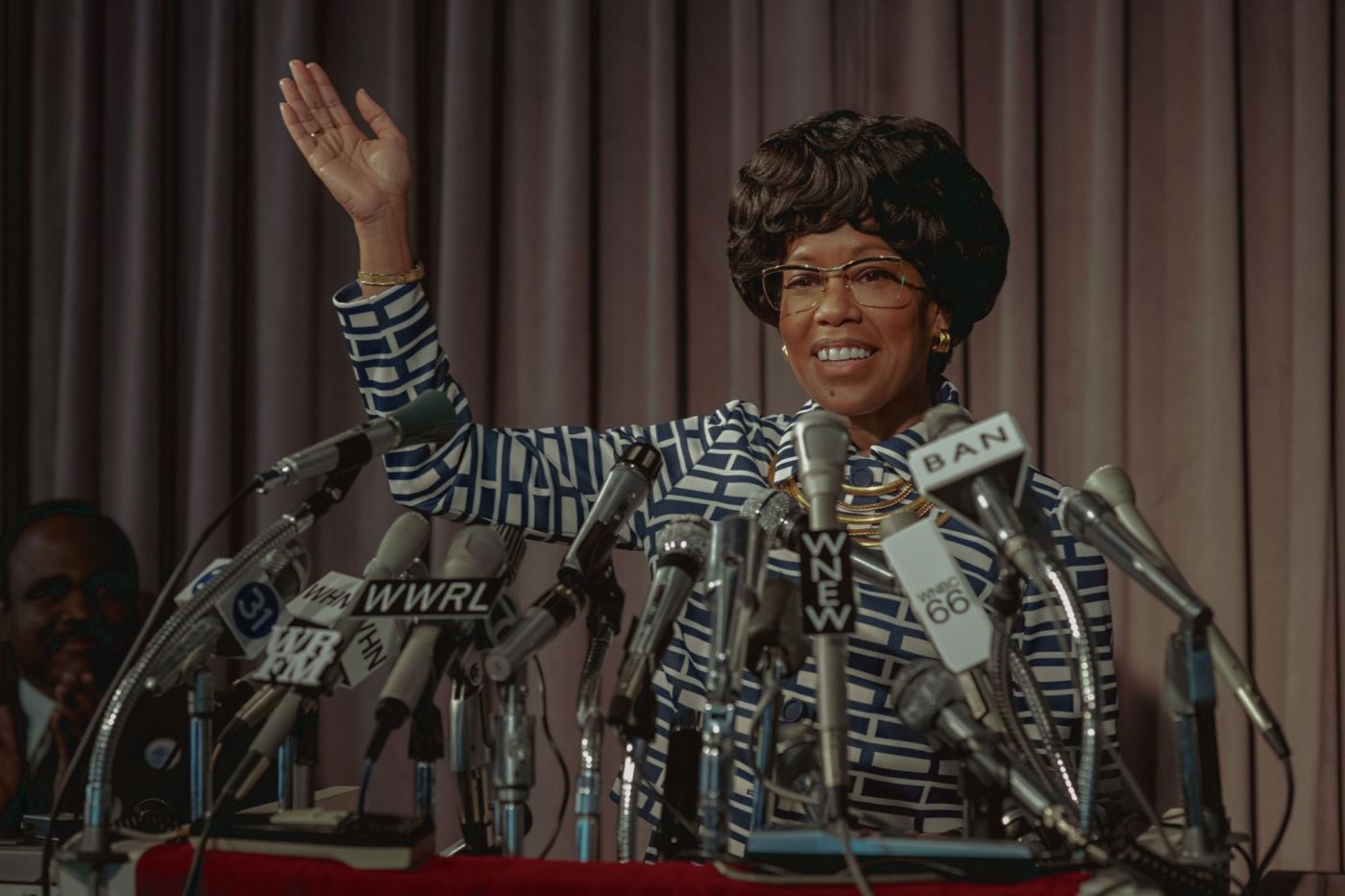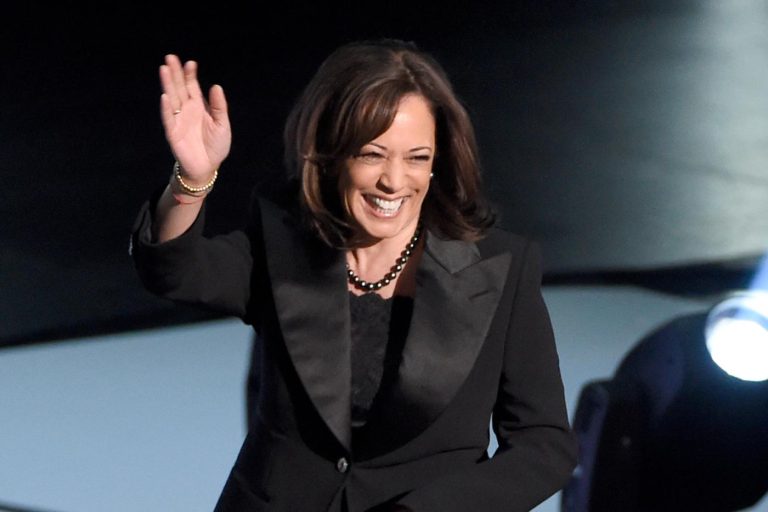Two hours: Is it enough for even a part of any person’s real life, dramatized?
The biopic form practically demands failure, or at least a series of narrative compromises made under pressure from so many factions: the real-life subject, or keepers of the now-deceased subject’s estate, nervous about an unsympathetic truth or two; the streamer or studio backing the project; and the filmmakers themselves, trying to do right by the person featured in the title, while finding a shape — and the ideal performer — to make the thing work.
“Shirley,” now streaming on Netflix, constitutes the latest frustrating, two-hour example of all that pressure. You don’t, however, detect any of it in the carefully detailed performance of Regina King as Shirley Chisholm, the first Black female member of the U.S. Congress, who campaigned for the Democratic presidential nomination in 1972.
Watching King in scenes with the late, great Lance Reddick (as Chisholm advisor Wesley “Mac” Holder), or Terrence Howard (Arthur Hardwick, her second husband; they met as New York State legislators in 1966), or André Holland (as Chisholm’s rival presidential hopeful Walter Fauntroy), you can relish the skill sets of these performers — their sleight-of-hand ease with even the horsiest loads of exposition. This, too, can scarcely be avoided in any biopic: those moments when two characters are meant to be talking like they know each other well, and are well-acquainted with the background or context of whatever they’re discussing. Problem is, the audience isn’t. So the dialogue starts sounding like they’re speaking directly to the viewer, in bullet points.
“Shirley” struggles with many such moments. Writer-director John Ridley, who also produced, focuses the two hours he has on a few months in ’72, when Chisholm took on the political challenge of her life, seeking 1,500 delegates amid a pale male sea of skepticism. Nixon was set to go for a second Republican term pre-Watergate; in those days, scandalous and/or illegal presidential activity was enough for a vast majority of the party in power to ditch the man in charge. McGovern, the way-out-ahead Democratic front-runner, felt inevitable though he got creamed by Nixon in the end.
Did Chisholm and her better-known, better-funded competitors, from Humphrey to Muskie to Lindsay, have a chance? No, and yes. Campaigns turn on a series of dimes, and coin tosses with fate. In America, we’re besotted with underdog stories because they typically involve long-shots who end up winning. “Shirley” can’t work that way, although Chisholm proved an seriously inspirational political figure. She had her eye on the future, whether she would run the country in that future or not.
I wish the movie dramatized those harried campaign months more persuasively, without quite so many speech-y bits even when no one’s making any speeches. Five minutes into “Shirley” in a brief scene from Chisholm’s first congressional year, there’s a confrontation with a bigoted white Southern pol, fussed about this interloping Black woman from Brooklyn earning the same $42,500 annual salary he does. Does the scene work? Only as crude shorthand. It feels more like a biopic straining for hit-and-run impact, rather than a telling fragment in a real-life story.
The actors do all they can, all the time. Lucas Hedges portrays young, green law student Robert Gottlieb, who at 21 became Chisholm’s national student organizer; Christina Jackson, astutely delineating campaign worker and future Congresswoman Barbara Lee’s conflicted feelings about politics, adds welcome doses of subtlety. Along with Reddick and company, these two buoy a script gradually taking on more and more water.
King’s in charge, of course. Her real-life sister Reina King plays Chisholm’s sister Muriel, resentful of Shirley’s favored-daughter status. In their scenes, and in every scene elsewhere, the top-billed Oscar winner (King won for her work in “If Beale Street Could Talk”) works low-keyed wonders in selling what’s overstated in an understated, humanizing way. Chisholm came from Guyanese and Bajan (Barbadian) descent, and while King foregoes some vocal particulars (the sibilant “s,” mainly) she evokes Chisholm’s public persona and refreshing candor extremely well.
Writer-director Ridley, who won his own Oscar for adapting “12 Years a Slave,” has done solid work (the recent Apple miniseries “Five Days at Memorial”) and at least one directorial documentary project, the 1992 Los Angeles uprising documentary (“Let It Fall”), that is very close to great. With “Shirley” we’re close to almost-not-quite territory, and visually, Ridley sticks with conventional shot sequences of characters in frame, alone, either speaking or reacting. This makes fluidity and interpersonal flow pretty difficult. The political particulars of Chisholm’s presidential bid, and the question of why so many other candidate’s delegates got funneled into McGovern’s losing campaign, never risk much complication. Time is too short.
At one point King, as Chisholm, resists the advisors’ pleas to simplify her “messaging” (was that word in circulation 52 years ago?) by saying: “I am not leaving out the nuance!” In “Shirley,” the top-shelf actors aren’t, either. Even if their material does.
Michael Phillips is a Tribune critic.
“Shirley” — 2.5 stars (out of 4)
MPA rating: PG-13 (for profanity including racial slurs, brief violence and some smoking)
Running time: 1:57
How to watch: Now streaming on Netflix.












